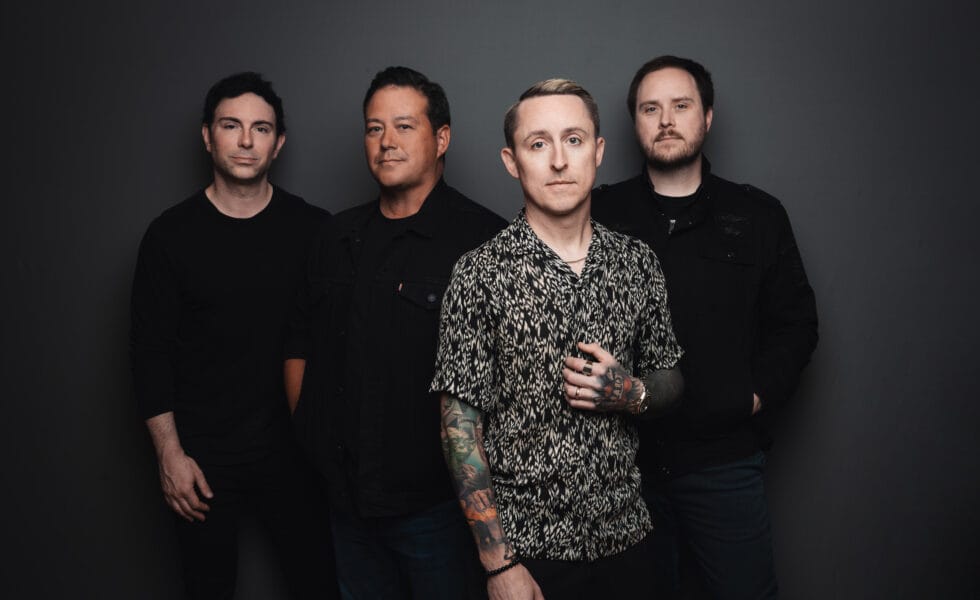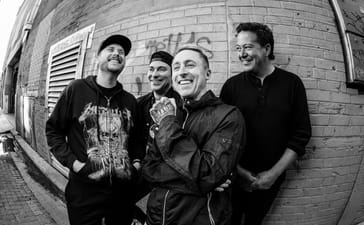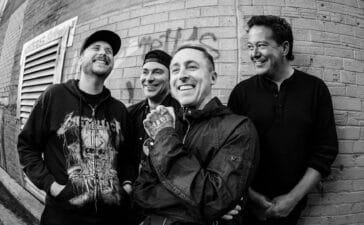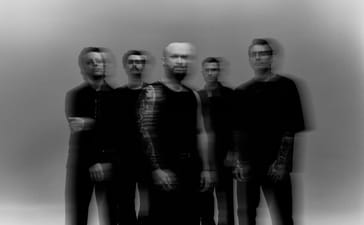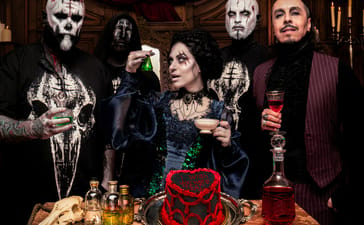The American rock band talk their break ups, past regrets and how a cultural shift changed their prospects
Yellowcard’s Ryan Key and Sean Mackin are enjoying a rare day off in Melbourne. It’s the first of three—an anomaly in a touring schedule that doesn’t leave much room to breathe. But today, they’re taking full advantage.
“We watched the F1 yesterday and now everyone’s scrambling to do laundry,” Key says, half-laughing. “I just hit the golf course,” Mackin adds, a quiet smile spreading across his face.
Yellowcard are currently travelling across Australia alongside Motion City Soundtrack and Plain White T’s. The line-up, by any measure, is formidable — and drenched in nostalgia.
“Globally, we’ve had quite a lot of pressure because people are wanting this tour everywhere,” Mackin explains. “It’s very rare to get the stars to align [with all the bands], but this tour has far exceeded anyone’s expectations.”
Indeed, nostalgia has become a powerful force in contemporary pop culture — one that’s changed the trajectory of bands like Yellowcard. Where once they seemed to be slowly slipping from view, like helium escaping a balloon, the past has pulled them back with renewed vigour.
“We played Margaret Court Arena the other night — 95% capacity,” Key says, the disbelief still palpable. “We last played there in 2015, and the venue was half full. That was honestly one of our band’s lowest moments.” He pauses, reflecting. “That night in Melbourne was a real eye-opener — it made us ask, ‘is this working the way it’s meant to?’”
That show was a turning point, a moment when the future of Yellowcard came sharply into question. “After that, we really started talking about whether we should be doing this at all.”
Fortunately, the tide turned.
“To come back ten years later and nearly sell it out — that’s a testament to how surreal things have become for us,” Key says.
Formed in 1997, the four-piece comprises Key on vocals, Mackin on violin, Ryan Mendez on lead guitar, and Josh Portman on bass. Nostalgia hasn’t just breathed new life into their sets, it’s changed their relationship to the industry itself.
“We don’t need to grind it out for eight or nine months of the year like we used to,” Key says. “To go from broken up, to back for good, to playing arenas two summers in a row — it’s hard to wrap your head around.”
When Yellowcard broke up in 2017, it was meant to be final. Unlike their previous hiatus in 2008, this wasn’t a pause — it was the end. Their final show was held on 25 March 2017.
A few years later though, the world stopped. And sometime in the post-COVID stillness, something shifted culture.
“We started out with one show in Chicago at Riot Fest, just to test the waters,” Mackin explains. “It was one of the most unreal nights of our career. The energy from the crowd — it just confirmed the spark was still there. That’s when we started talking about how to take it further.”
Now, as they tour in celebration of the 20th anniversary of their multi-platinum album Ocean Avenue, it’s clear the spark wasn’t just alive — it was waiting to roar back. That the record is now more than two decades old is a fact the band still seem to be processing.
For Key, the milestone lands differently. “A lot of that time is lost on me,” he says, his tone shifting to something more introspective. “At twenty-four, I had no idea how to manage the pressure or the stress. I’m better equipped now — but back then, I didn’t have the tools.”
Mackin nods in agreement. “It’s unimaginable, what we went through,” he says, quietly.
Then he adds, more pointedly: “Basically, we had a manager who just ravaged us. In 2004, I slept in my own bed twenty-five nights out of the year. It was nineteen months of touring without a proper break. We tried to lean on each other — but at twenty-four, you don’t know how.”
Key jumps in to clarify, choosing his words carefully. “Don’t get us wrong — our manager was amazing. But I didn’t know how to express what I was internalising. I didn’t know why I was angry, or how to explain the stress I was carrying. Now, I can have that conversation. I can say, ‘Hey, I’m feeling this way — can we talk about it?’”
That growth, both personal and professional has changed everything for the band. “We have support networks now,” Mackin says. “People around us who look out for us, who nurture the relationships that make Yellowcard work.”
And it’s paying off. Yellowcard are, at long last, receiving the recognition they missed during their first peak. They’re playing packed arenas across the globe and are soon set to perform at a stadium in Brazil alongside Fall Out Boy. They’ve also recorded a new album with Blink-182’s Travis Barker behind the drum kit and production desk. “He played all the drums and produced the whole thing,” Key says. The excitement in his voice is unshakeable.
And while the hard years were bruising, they’ve given the band something more valuable than fame — perspective. “That’s what makes it all feel so surreal now,” Key reflects. “We’re finally able to soak it in. To see how incredible it is — without worrying where it’s all going to end.”
There’s a quiet finality to his words. As though one long, complicated chapter has gently closed and the next has already begun. One with a steadier footing, and a brighter horizon ahead.
Yellowcard are currently touring Australia with Motion City Soundtrack and Plain White T’s. Their show at Bar on the Hill in Newcastle will still take place, however Yellowcard will not be performing. For information on refunds click here.
Yellowcard are also performing in Brisbane as well as two special Sydney shows at Liberty Hall on 15 and 16 April. To purchase tickets click here.



